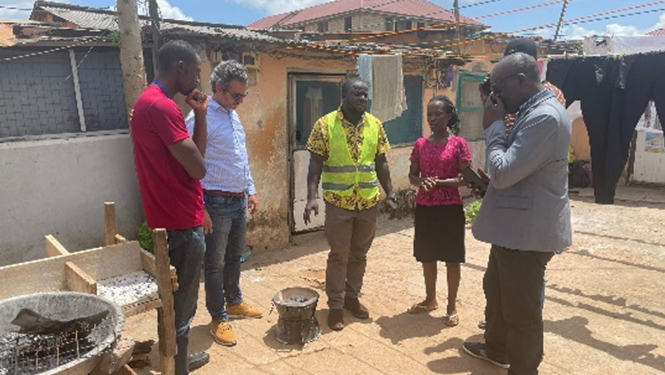Rwanda-based Carbon Growth Partners team member Dr William Apollinaire recently travelled to Ghana, one of world’s most progressive nations in carbon markets. Dr Apollinaire was there to extend our due diligence on a clean cookstoves program in and around the capital, Accra.
Dr Apollinaire is a noted conservationist who has worked and lived across central Africa, most recently in Kigali where he is a researcher at the University of Rwanda. During his site visit, William travelled across to Ghana, meeting with government officials, the project team, local communities and conservation groups to learn more about the project. Charles Bedford caught up with William to debrief on his findings.
Q: Firstly, what is going on in Ghana and why does it matter?
A: Ghana is a poor but fast-growing country that relies on burning wood for 78% of all primary energy consumption needs for households and small industries. Ghanaian people depend on solid fuels for domestic and commercial use. Wood fuel consumption is expected to increase in the future due to population growth. In the Greater Accra Region alone, millions suffer a lack of clean cooking energy sources. So, this project aims at significantly reducing wood fuel consumption of low-income Ghanaian households by providing them with affordable improved cookstoves in replacement of their low efficiency three-stone fires and traditional stoves.
Q: What is the situation on the ground there?
A: Accra is a bustling city of six million people and growing. Energy infrastructure is limited and gas and electricity are very expensive, so families depend on harvesting or buying wood to cook, typically using what is called a “three stone” fire. These stoves are terribly inefficient, with 15-18% efficiency.
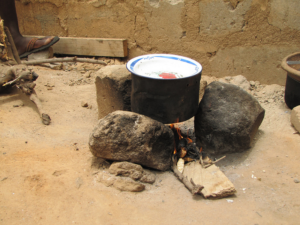
An old-fashioned three stone fire. Image credit: Lowtech Magazine
A “technology” solution is available—the efficient cookstove–and can double the efficiency of the stove, thereby cutting emissions of CO2 in half. When done well and managed over time, these savings in emissions create carbon credits.

Jiko efficient cookstove Image credit: Engineering for Change
Q: Pretty cool and simple! What are the other benefits from these sorts of projects?
A: Well, the big one is human health. Many three stone fires are used inside or in closed spaces. They are smoky and inefficient. Women do the majority of cooking in Ghana, so they, and their children who are at home, have far higher rates of lung disease and cancer than those with more efficient cooking technology. Quality of life and life expectancy are far lower so a clean alternative is vital.
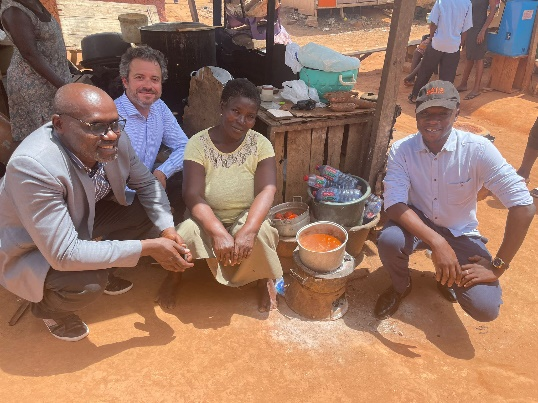
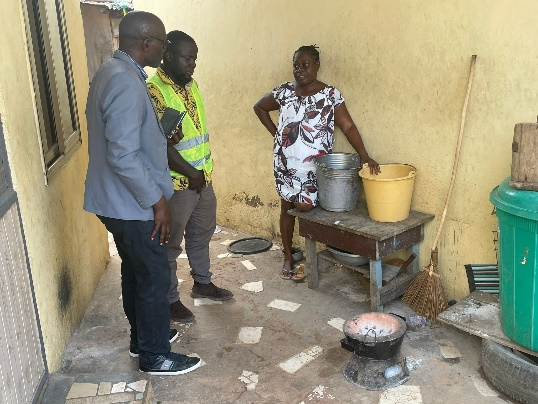
Cookstove follow-up crew. Image credit: Dr William Apollinaire
Q: Where does the wood come from? How can forests support so many households cooking?
A: They can’t. Ghana’s forest resources are subject to widespread deforestation and degradation resulting from increased population pressure, inefficient cooking practices, wasteful fuel wood harvesting and inefficient charcoal production. The Ghanaian government is concerned about this destruction of the ecosystem and wildlife habitats in Ghana’s forests, as well as the effect on watersheds, rainfall pattern, heat island effect and the climatic conditions of the country. Getting more efficient in day to day cooking can help reduce those pressures while the government accesses other funding sources to make the energy transition over the next few decades.
Q: Ghana seems like a tough place to do conservation and carbon projects. How did the project come about?
A: This is an interesting story. As a development tool, UN aid project and general concept, cookstoves have been around for 50 years, typically handed out for free with little follow-up. But what was missing all these years was a long-term systemic approach to monitoring, management, repair and replacement of stoves, and the accountability of keeping them working and useful to people. Carbon finance has baked-in incentives (forgive the pun) to make sure that stoves are working and generating the carbon reductions that they say they are making. Man and Man Enterprises has created a sustainable business model by working along the whole supply chain. They work with a French company, AERA, which is a leader in carbon project development in Africa, on quality control, marketing and execution.
Q: How does that work? What is the project doing?
A: The incentives and motivations to make these projects run successfully have to be carefully planned and aligned at the start. The project developer has to find a way to make stoves locally—in this case they are also the stove manufacturer and use waste tin from a roofing factory and local clay to build stoves. Stoves are sold, at a discount, to families and small businesses rather than donated; this vests the owners in the success of the project. Training in the use of the stoves is critical and happens up front through a cadre of trainers and checkers. And follow up is critical to make sure that the stoves are being used, that they are in good working order, that the carbon reductions are real, and that stoves get repaired or replaced.
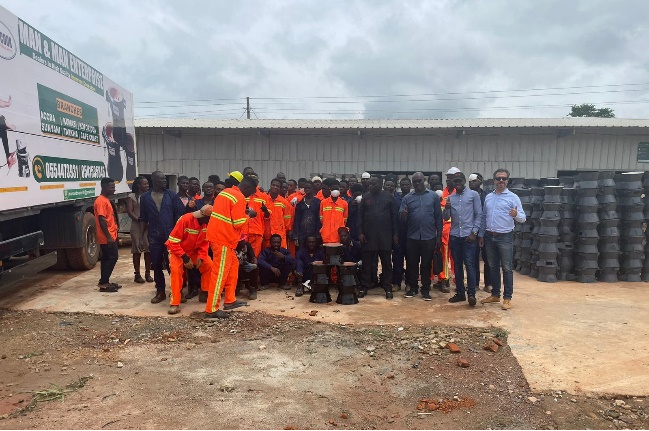
Stove manufacturing facility in Kumasi. Image credit: Dr William Apollinaire
Q: What has been achieved so far?
A: Since 2020, the team have distributed 141,000 stoves, on their way to 400,000 by 2025. The “Holy Cook” improved cookstoves have reduced charcoal consumption by half already. Jobs in the project activity chain include the stove selection (design and manufacture), the stove distribution (distribution, education and training) and ongoing usage (usage, monitoring and reporting). Users are already reporting improved health outcomes. Without financing from carbon credits, these benefits just wouldn’t happen. Little things make a big difference to people in deep poverty; lives are being changed.
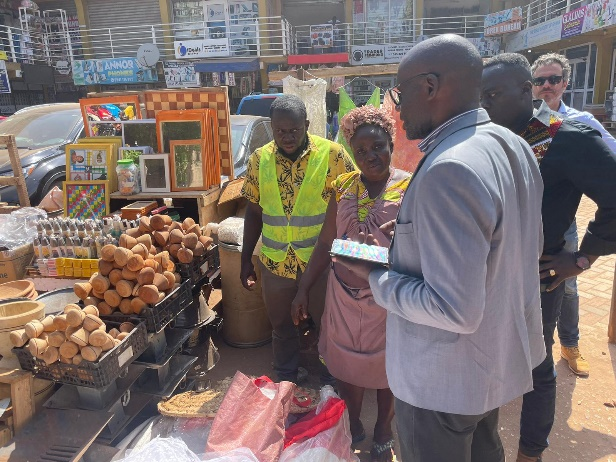
Selling stoves in Accra. Image credit: Dr William Apollinaire
Q: What does the future look like for people in Accra and around?
A: Interestingly, Ghana is a leader in climate finance activity, likely borne out of necessity of sustainably developing their economy. In addition to cookstove projects, there are many other carbon projects happening on the ground, including agroforestry, reforestation, methane capture, and conservation. And the government is one of the most sophisticated in the Global South around Article 6, which is the part of the UN Paris Climate accord that deals with transfers of carbon credits from one nation to another. Ghana and Switzerland announced the first Article 6 credit trade last year, and Ghana has subsequently reached agreements with Sweden and Singapore.
These sorts of interventions are critically important, but much more needs to be done. Sustainable grid energy needs to come online soon to transition away from so many inefficient wood burning stoves. Average temperatures are rising and impacting children and the elderly. Climate change is most grinding in its impact on Ghana’s poor. These cookstoves are a step in the right direction, and, hopefully, add to Ghana’s national development goals.

